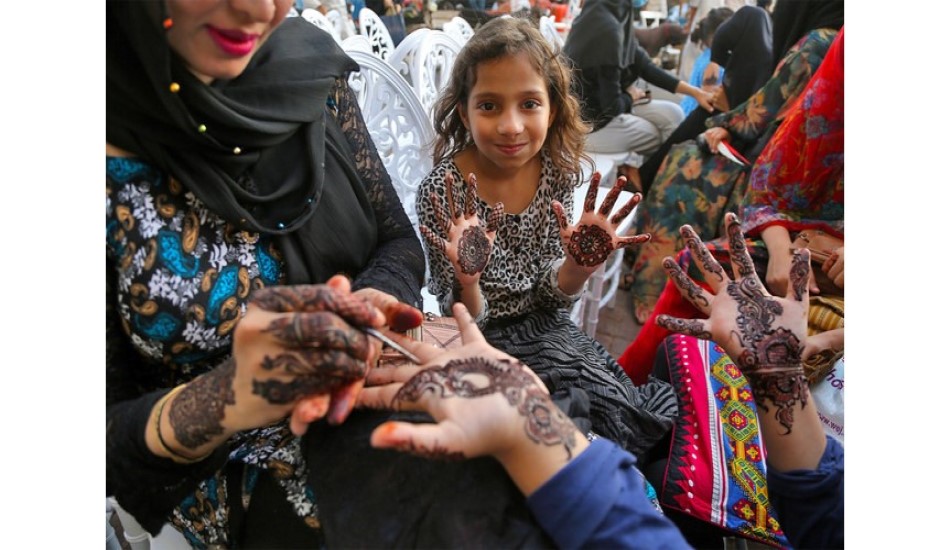Mental health and well-being: Addressing the stigma surrounding mental health in Pakistan and sharing resources and tips for promoting self-care and emotional resilience.
Mental health is an essential component of overall well-being, but unfortunately, it’s a topic often overlooked and stigmatized in Pakistan. According to a study, around 34% of Pakistan’s population has been diagnosed with some form of mental health disorder (Majorly depression and anxiety). Still, many people fear seeking help because of fear of being judged or ostracized. That’s why breaking the silence and discussing mental health openly is crucial to reducing the stigma surrounding it.
In this article, we’ll address the stigma surrounding mental health in Pakistan and share valuable resources and tips for promoting self-care and emotional resilience. Whether you’re struggling with your mental health or want to learn more about how to support those around you, this article is for you. So, let’s dive in and start discussing mental health and well-being in Pakistan.
Addressing mental health stigma in Pakistan
Mental health stigmas are prevalent in Pakistan, and they affect not only certain mental disorders but also overall well-being.
- The reasons behind these stigmas range from cultural adaptations, religious beliefs, lack of education related to mental health, and the fear of being ostracized from society.
- In Pakistan, mental health problems are often seen as personal failures rather than medical conditions, which is reinforced by culturally adopted as well as poorly learned spiritual and religious beliefs associated with possession by evil spirits or regarded as a punishment for sins.
- The societal and culturally built concept of “men don’t cry” leads to a lack of emotional expression in men, developing frustration and aggressive behaviours.
- People in Pakistan believe in supernatural and para-natural combined things as the influence of demons, witchcraft, ghosts, magic, etc., making it difficult for individuals to seek professional help.
- Under treatment in Pakistan, people are often labelled as “Pagal” or “Nafasiyati,” making it difficult for individuals to discuss their mental health issues.
- Considered a luxury item in terms of high charges for therapeutic sessions leads to a financial challenge for people to access treatment.
- The lack of education and awareness on sex education, marital abuse, emotional abuse, and other related issues in Pakistan exacerbates mental health problems. Individuals who experience them may be hesitant to seek help due to societal norms and values.
The Need for Community and Social Awareness Campaigns for the Improvement of Mental Health and Well-being in Pakistan
In Pakistan, a country of over 220 million people, mental health and well-being issues are prevalent, and the lack of education and awareness on these issues exacerbates the problem. Promoting education and awareness campaigns to address the stigma surrounding mental health in Pakistan is crucial. By fostering the acceptance and understanding of mental health issues, we can encourage open communication and support networks for those who may be struggling. Increasing funding and resources for mental health services can also help to alleviate the burden of mental health issues in Pakistan.
One effective way to address mental health stigma is through community-based programs tailored to specific cultural, linguistic, and social needs. By promoting these programs, we can help to reduce the barriers to accessing mental health services and support networks.

Promoting self-care and emotional resilience
Here are 5 tips for promoting self-care and emotional resilience for the mental health and well-being of people living in Pakistan and catering to mental health stigmas;
- Prioritize self-care: Self-care promotes emotional resilience and maintains good mental health. It is essential to prioritize self-care by practising mindfulness, getting enough sleep, exercising regularly, and taking breaks when needed.
- Seek professional help: Seeking professional help is essential for addressing mental health issues. It is crucial to break the stigma surrounding mental health and seek the help of a mental health professional if you are struggling with your mental health.
- Educate yourself and others: Educate yourself and others by reading up on mental health topics and sharing resources with those around you.
- Build a support network: A support network promotes emotional resilience. Contact friends, family, or mental health professionals for support and guidance.
- Challenge stigmas and stereotypes: Challenging stigmas and stereotypes surrounding mental health are significant for breaking down barriers and promoting acceptance. Speak up when you hear stigmatizing language or behaviour and help to educate others on the importance of mental health and well-being.
Final Thoughts
In conclusion, mental health and well-being are crucial aspects of overall health that need to be addressed more openly and positively in Pakistan. Mental health stigmas often prevent individuals from seeking help and support. Still, with increased awareness, education, and community-based programs, we can break down these barriers and promote acceptance and understanding.
By prioritizing self-care, seeking professional help, educating ourselves and others, building a support network, and challenging stigmas and stereotypes, we can promote emotional resilience and improve mental health and well-being for ourselves and those around us. It’s time to start discussing mental health and well-being in Pakistan and work towards a society that supports and prioritizes mental health.
This article is initially published at https://www.linkedin.com/pulse/mental-health-stigma-pakistan-self-care-emotional-resilience


[…] Mental health stigma in Pakistan: self-care and emotional resilience […]
[…] Mental health stigma in Pakistan: self-care and emotional resilience […]
[…] welfare of society and the welfare of the world. This niche might include the environment, hunger, mental health, jobs, health or any other way. The Top 10 Philanthropists in Pakistan are the […]